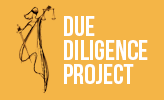Our Issues
Violence Against Women
Violence against women includes any act that causes physical, sexual, psychological, social, or economic harm, whether through threats, coercion, or deprivation of liberty, in both public and private spaces.
VAW is a clear violation of human rights. Governments must take action, recognizing that it’s not just a private issue, but a public matter requiring accountability and intervention.
The Due Diligence Project looks beyond individual acts of violence, focusing on the deeper causes and risks. It explores how factors like poverty and ethnicity intersect with violence against women, and examines the links between gender equality, human rights, and cultural influences.
Since 2011, businesses are also responsible for upholding human rights. Companies/entities must prevent human rights abuses in their operations and provide remedies if violations occur. Employers, industry actors, financiers and educational institutions have all been held accountable for violence against women occurring in their establishments, by their contractors and employees or using their platforms.
Technology Facilitated Violence
Freedom of expression and access to information are key to human rights, but the rise of technology facilitated violence against women (TFVAW) is threatening the internet’s transformative power.
TFV includes everything from online harassment and hate speech to digital voyeurism, non-consensual sharing of intimate content, and even AI-generated fake images and voices. As digital communication becomes central to our personal, social, and political lives, tackling TFV is crucial to ensuring women and girls can fully exercise their rights. Eliminating this violence not only protects women but also strengthens freedom of expression, creating a safer space for all to participate online.

Since 2013, the Due Diligence Project has researched technology-facilitated violence (TFV) and its impact on women and girls, advocating and collaborating with States and industry actors for enhanced accountability standards and actions. Building on its expertise, the project developed a groundbreaking framework for State and tech company responsibility in tackling TFV. It has also raised awareness at major international events, supporting and bringing experts and officials together to spotlight this issue, develop action plans and demand action.

Universality of Human Rights
Human rights are universal and apply to everyone, promoting equality, dignity, and respect for all. However, some people mistakenly see cultural diversity as a challenge to these rights. Many cultural practices have supported human rights, and by keeping the positive ones and changing the harmful ones, we can create a culture that supports equality.

Social and cultural rights, like the freedom to express one’s culture and religion, are protected by law. While cultural norms can promote positive values and good practices, they can also be misused to harm another’s human rights. Educating leaders, community members, and legal authorities can help promote cultural practices that respect human rights, where women and girls are free from violence and discrimination.
The Due Diligence Framework: State Accountability Framework for Eliminating Violence against Women
Learn How The Due Diligence Framework Can Help Eliminate Violence Against Women
Read Here© 2025 The Due Diligence Project. All Rights Reserved.
